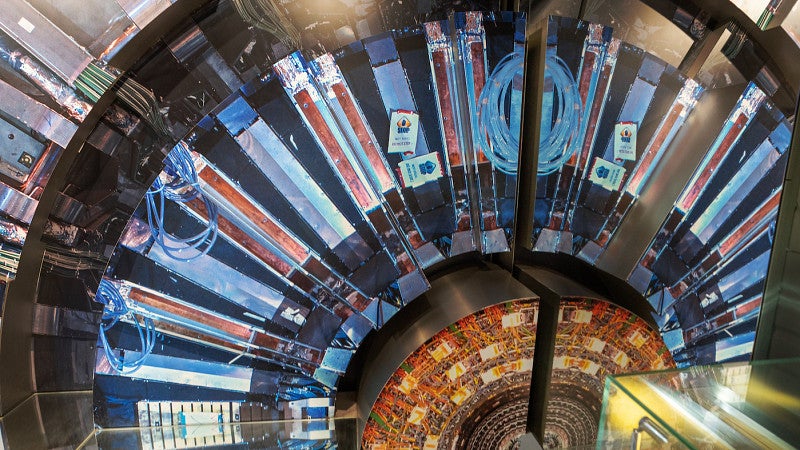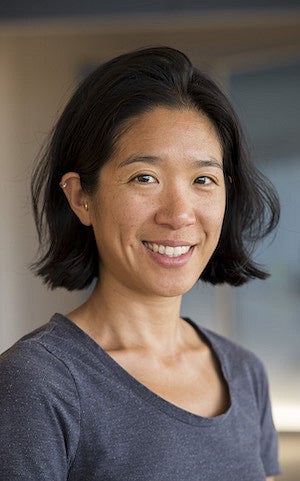
Tien-Tien Yu, particle physicist and associate professor in the College of Arts and Sciences, has been appointed a member of the P5, or Particle Physics Project Prioritization Panel, an advisory group convened approximately every 10 years by the Department of Energy and National Science Foundation.
Along with 30 other leading individuals from institutions across the globe, Yu will help determine the projects in particle physics that will be funded over the next decade. Via the High Energy Physics Advisory Panel, to which it reports, the P5 informs the funding strategy for both agencies for the next 10 to 20 years. The goal is to identify opportunities for the greatest impact and progress in the field.

“Research in particle physics is an international effort," Yu said, "and we need to consider how the various efforts, both existing and proposed, within the United States will fit in a global context in the international community of particle physics.”
Graham Kribs, a colleague and professor in the Department of Physics who directs the Institute of Fundamental Science at UO, said, “The community and the funding agencies decide on a series of people they think would best represent the field. So, it’s amazing that Yu was selected; she just got tenure last year.”
Kribs also said that as a theorist rather than an experimentalist, Yu brings “a fantastic perspective” to the P5 process, because there are only a few theorists on the panel.
Yu is also a leader in advancing diversity, equity and inclusion in the physics field. According to Yu, who is a founding member of the group Particles for Justice, issues related to diversity, equity and inclusion are an increasing priority for P5 compared to previous years. Almost half of the panelists are women, compared to only 20% in 2014 and a little over 10% in 2008.
Yu’s research in the field pertains to the study of the fundamental building blocks of the universe and theory, or phenomenology; she’s interested in theories that you can test experimentally. This means that in her words, she “rests at the interface of theoretical work and experimental work.”
Yu is particularly interested in research beyond the Standard Model of Physics, which according to Yu is the theoretical framework that explains how all the known particles like electrons, protons and neutrons, interact with each other. Yu studies how that pertains to dark matter, which is a hypothesized form of matter which interacts gravitationally but otherwise interacts minimally with the known Standard Model particles. Her most well-known project in dark matter was an experiment called SENSEI, which aimed to detect dark matter using light-sensitive silicon sensors.
She was a co-convenor of the particle dark matter topical group of the Cosmic Frontier in Snowmass, a major, 2-year community study of the state of the particle physics field in the US that serves as the precursor for the P5 panel. Historically, many researchers from the Institute of Fundamental Science have been involved in Snowmass.
Kribs said this involvement is a big deal because it can help to steer funding towards projects that UO physicists are well-positioned to take on, increasing the likelihood of major grants being awarded to UO.
“It is perhaps not as well known among the local UO community that we have such a strong presence in particle physics, and even just more generally, a powerful involvement in fundamental science,” Kribs said.
-by McKenzie Days, College of Arts and Sciences
